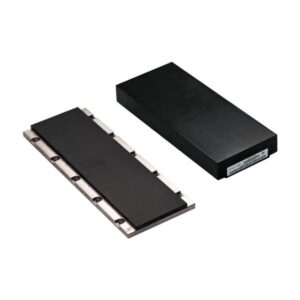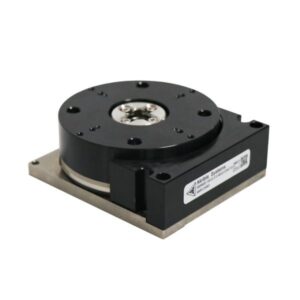Parker – PAC – Parker Automation Controller
Designed for the global machine market, the Parker Automation Controller (PAC) combines advanced logic, signal handling, multi-axis motion (camming, gearing, robotics, and CNC), IEC61131 programming and visualization into one performance-driven solution.
Designed for the global machine market, the Parker Automation Controller (PAC) combines advanced logic, signal handling, multi-axis motion (camming, gearing, robotics, and CNC), IEC61131 programming and visualization into one performance-driven solution.
Powerful, integrated, and designed for the global machine market, the EtherCAT based Parker Automation Controller (PAC) combines machine logic, signal handling and high-speed motion control into a standard based, performance driven, fan-less and easily mountable din rail solution. This programmable automation controller comes equipped with a native, uninterrupted EtherCAT bus for high-speed I/O and motion control, a modular interface slot for 3rd Party device communication, standard Ethernet and USB ports plus onboard SD program storage. Programmed with the Parker Automation Manager software, OEMs can produce efficient, high-performance control systems based on the IEC 61131-3 and PLCopen Motion standards.
The motion controller's solid state design is precisely engineered for demanding industrial environments. The powerful, yet energy efficient Intel Atom N2600 processor allows for fanless operation while supporting dual-cores, 64-bit instructions, and Hyperthreading technology. Coupled with the removable, solid state SD storage media, all moving parts have been eliminated for a robust, industrial grade control solution.
Parker Automation Controller (PAC) - Features:
- IEC 61131-3 Programming (LD, ST, CFC, FBD, SFC, IL)
- PLCopen Motion Control (parts I, II & III)
- Simulation Runtime
- Advanced Cam Editor
- High-Speed EtherCAT for Motion and I/O
- Local and Remote I/O
- Dual Ethernet Networks (for network separation)
- Modular Communication Interface (Ethernet/IP, Profinet, Profibus and Modbus TCP)
- CNC Capability / Editor Conforming to DIN66025
- Intel Atom N2600 dual core, 1.60 GHz, 64-bit, w/ Intel Hyper-Threading Technology, 1 GB DDR3 SDRAM
- SD Application Memory
- Fanless operation
- DIN rail mounted
- Web Visualization
- Web Configuration Tool
Parker Automation Controller (PAC) - Technical Overview:
- Supply Voltage : 24 VDC -15 %/ 25 %
- CPU : Intel N2600 CPU, 1.6 GHz, Dual Core, 64bit, 1 MB L2 Cache
- Memory : Up to 1 GB SDRAM
- Storage : 2 GB
- Ports :
2x RJ-45 10/100/1000BaseT Ethernet
1x RJ45 100Mbit/s EtherCAT supporting IEEE1588 distributed clocks
2x USB 2.0 Host Type A - Storage Temperature : -25 to 70 °C
- Operating Temperature : 0 to 50 °C
- Relative Humidity : 5 to 95 %, non-condensing
- Built-in Fieldbus : EtherCAT 100 Mbit/s
- Dimensions : 25x120x90 mm (WxHxD)
- Shielding : Connected straight to module housing
- Installation : 35 mm DIN rail (top-hat rail)
- Protection : IP20
- CE Compliant : 2004/108/EC Electromagnetic Compatibility
- UL : UL508 & UL61010-1 / UL61010-2-201
Designed for OEMs to maximize efficiency while exceeding performance expectations, the Parker Automation Control System comprises the Parker Automation Controller (PAC), the Parker Automation Manager Integrated Development Environment (IDE), and the PAC I/O System. Together these elements provide OEMs with a powerful, standards-based programmable automation controller designed to tackle the most demanding applications. The PAC System consolidates machine logic, signal handling, advanced motion, and visualization into one performance driven solution, thus eliminating unnecessary hardware and communication links, and maximizing developer efficiency. The PAC I/O System comprises a variety of modules for digital, analog, temperature signals, high-speed counters, stepper and DC motor control as well as communication interfaces. The Parker Automation Manager (PAM) provides tools for faster code generation, modular code reuse and decreased commissioning times and thus supports faster times to market, decreases development cost, and increases ROI. Engineers can work smarter, more efficiently and more effectively by choosing from the five IEC standard programming languages to optimize for an application, by using industry standard PLCopen Motion for motion control programming, deploying to the powerful simulation runtime for faster development and using online variable watch and trending for logic analysis. Parker Automation Manager puts the engineer first and provides all the tools to make control programming smart and efficient.
Communication Modules:
The Parker Automation Controller (PAC) comes standard with the industry leading high-speed EtherCAT communication bus for motion, I/O, and 3rd party device connectivity. Coupled with the standard modular communication interface, dual LAN capability, and ability to integrate directly into Ethernet/IP networks (Modbus TCP is also available), the PAC provides unprecedented connectivity for complimentary devices and network isolation for IT professionals. The following communication protocols are available :
- EtherCAT
- PROFINET
- Profibus (via PACIO slave module)
- Ethernet/IP
- Modbus TCP (Master & Slave as a standard on every unit)
Parker Automation Controller I/O Modules:
The PAC I/O System comprises a variety of modules for digital, analog and temperature signals as well as communication interfaces. The modules connect directly to the controller via the built-in EtherCAT bus for local architectures and are extended to remote locations via the extender and bus coupler modules, thus supporting both local and distributed I/O architectures. PAC I/O modules feature a removable cage-clamp terminal design which provides for easy wiring and assembly and allows for the removal and insertion of modules without interfering with wiring; LED status indicators for the EtherCAT bus, I/O, power and each signal channel; front-face shield-grounding to the din-rail; removable label inserts; easy access front mounted module disconnects; and laser etched identification and schematic information. PAC I/O communicates natively on the EtherCAT bus and is unencumbered by protocol converters; therefore it provides the full functionality and throughput of high-speed EtherCAT to meet the most demanding I/O requirements.
Certifications
UKCA Certified
UL Listed







